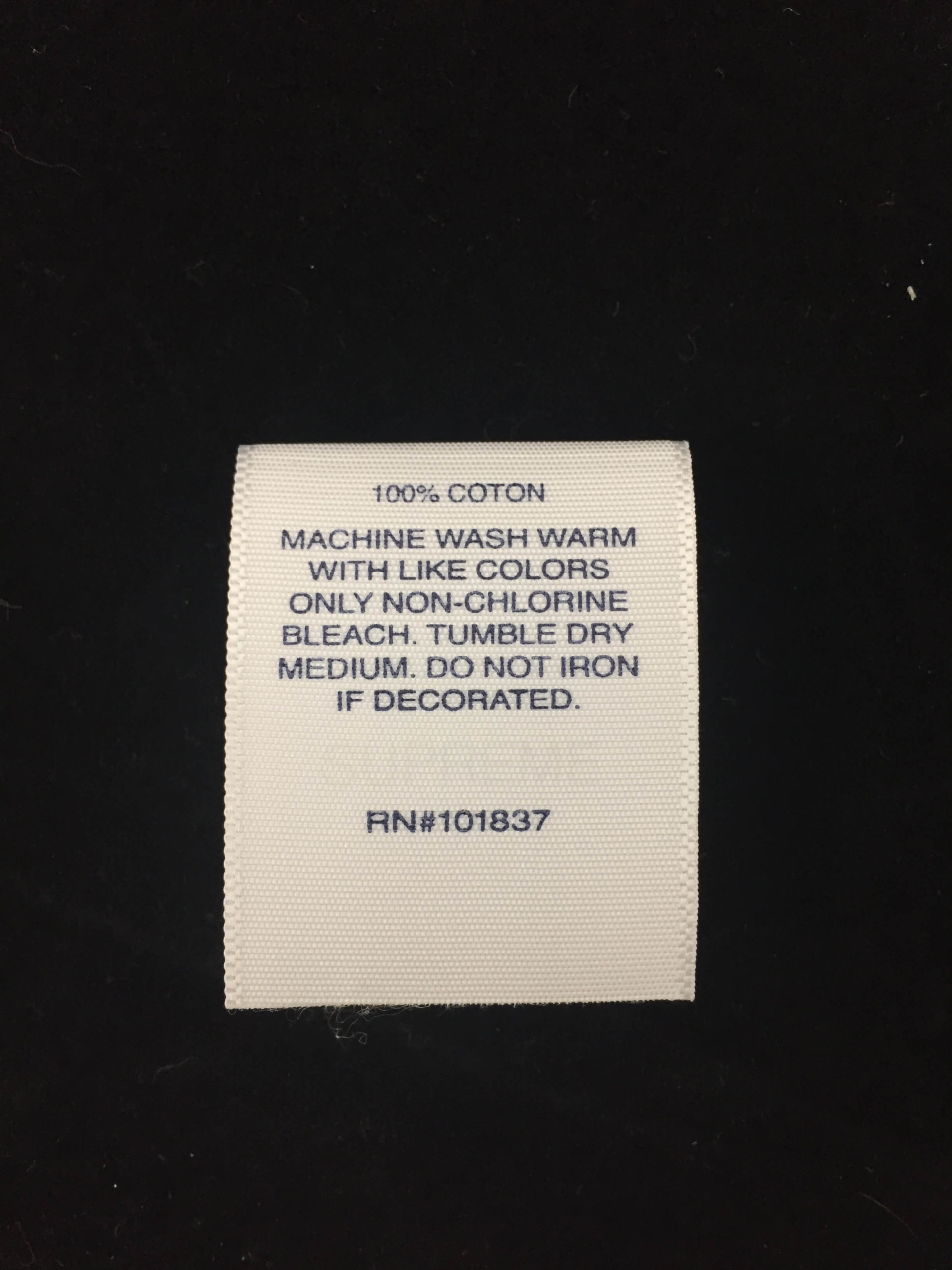45 is country of origin required on labels
Compliance FAQs: Packaging and Labeling in the US | NIST title 19, united states code, chapter 4, section 1304 and 19 cfr 134, country of origin marking regulations require that every article of foreign origin (or its container) imported into the u.s. be marked in a conspicuous place as legibly, indelibly, and permanently as the nature of the article (or container) will permit, and in such a manner as … PDF Country of Origin Labelling Requirements - Comparative Research and ... - possible wording and abbreviations of origin labels or marks - further requirements as to the type of labelling or marking (especially exceptions allowed and the possibility to use stickers) Further Research (second and third level) 20 / Country of Origin Labelling Requirements 21.09.2016 - Comparative Resear ch and Conclusions
Country of Origin Labeling - International Fresh Produce Association Country of origin labeling (COOL) is a mandatory U.S. labeling law enforced by the U.S. Department of Agriculture (USDA) that requires retailers notify their customers with information regarding the source of certain foods, also referred to as covered commodities.

Is country of origin required on labels
Country of Origin Marking Requirements | PackagingLaw.com Under the Tariff Act of 1930, every article of foreign origin (or its container) imported into the U.S., unless exempted, must be marked in a manner that will indicate to the ultimate purchaser the article's country of origin. For example, goods originating in China must be marked, "Made in China" or "Product of China." Origin Labeling Requirements for Imported Commodities Passed Tuesday, June 15, 2021 We have previously reported on proposed Senate legislation that would require country of origin labeling (COOL) for imported commodities sold online. On June 8, 2021, the... Country of origin - Wikipedia The requirements for Country of Origin markings are complicated by the various designations which may be required such as "Made in X", "Product of X", "Manufactured in X" etc. ... The 2010 Fur Products Labeling Act requires the country of origin of imported furs to be disclosed on all labels and in all advertising.
Is country of origin required on labels. Country of origin food labelling | ACCC A visual style guide is available to assist businesses to correctly design and display their country of origin food labels as required by the Standard: Three component standard mark - a graphic and text-based label which is mandatory for priority food items grown, produced or made in Australia. The label includes: Country of Origin Labeling Requirements - BOA Logistics Country of Origin Labeling Requirements. Imported products are required to be marked with their country of origin. Countries of origin are where products were manufactured, produced or grown. This is necessary as a Customs requirement to keep the process efficient, since it makes it obvious if a good can legally be imported. Marking of Country of Origin on U.S. Imports Acceptable Terminology and Methods for MarkingEvery article of foreign origin entering the United States must be legibly marked with the English name of the country of origin unless an exception from marking is provided for in the law. Country of origin labelling - Food Standards Country of origin labelling requirements for food is in the Country of Origin Food Labelling Information Standard 2016, under the Competition and Consumer Act 2010. These requirements became mandatory on 1 July 2018. At the same time, the Food Standards Code was amended to remove country of origin labelling requirements.
EU - Labeling/Marking Requirements The first step in investigating the marking, labeling, and packaging legislation that might apply to a product entering the European Union is to draw a distinction between what is mandatory and what is voluntary. Decisions related to mandatory marking, labeling, or packaging requirements may sometimes be left up to individual Member States. Country of Origin Labeling (COOL) | Agricultural Marketing Service Country of Origin Labeling (COOL) is a labeling law that requires retailers, such as full-line grocery stores, supermarkets and club warehouse stores, to notify their customers with information regarding the source of certain foods. What Is Country of Origin Labeling? An Overview According to U.S. Customs and Border Protection (CBP), every article of foreign origin entering the U.S. must be legibly marked with the English name of the country of origin, unless an exception from marking is provided in the law. The country of origin is defined as the country of manufacture, production or growth of an article. Country of Origin Labeling (COOL) Frequently Asked Questions What is COOL? Country of Origin Labeling (COOL) is a consumer labeling law that requires retailers (most grocery stores and supermarkets) to identify the country of origin on certain foods referred to as “covered commodities”. The 2002 and 2008 Farm Bills and the 2016 Consolidated Appropriations Act amended the Agricultural Marketing Act of 1946 to require retailers to notify their ...
CPG Sec. 560.200 Country of Origin Labeling CPG Sec. 560.200 Country of Origin Labeling BACKGROUND: A statement of the country of origin on the labeling of imported foods is not required by the Federal Food, Drug, & Cosmetic Act. This is a... Mandatory country-of-origin labeling (US) - Wikipedia Country of origin labeling (COOL) (or mCOOL [ m for mandatory]) is a requirement signed into American law under Title X of the Farm Security and Rural Investment Act of 2002 (also known as the 2002 Farm Bill), codified at 7 U.S.C. § 1638a as Notice of country of origin. Country of origin food labelling resources | business.gov.au May 21, 2021 · Imported priority foods must, as a minimum, carry a country of origin statement in a clearly defined box (the box is not required if the food is being sold unpackaged). Example of a country of origin statement in a clearly defined box below: The outline box is not required on imported non-priority food products. Country of origin food labelling | business.gov.au Country of origin food labelling Last Updated: 21 May 2021 Most food products for retail sale in Australia require a country of origin label. This page helps you identify the regulation you need to comply with and the label that applies to your food product. Country of origin food labelling can let consumers know which country a product came from.
Country of origin labelling online tool | business.gov.au The tool only generates standard mark labels. It doesn't generate country of origin statements (without the outline box) but it does show you how to create your own origin statement. If the tool recommends no label, it means the food product does not require a standard mark or a country of origin statement. Prepare to use the online tool
Threading Your Way Through the Labeling Requirements Under the Textile ... The Rules require labels to disclose the country where the product was processed or manufactured. The FTC amended sections 303.33 (d) and (f) and 300.25 (d) and (f) to clarify that the country where an imported product is processed or manufactured is the country of origin as determined under the laws and regulations enforced by Customs. E-commerce.
Country of origin | ACCC Country of origin food labels. Most of the foods you buy need to display country of origin labels. Look out for these labels on food packages or in-store signage. Different labelling requirements apply depending on: whether the food is grown, produced, made or packed in Australia or another country
Country of Origin Food Labelling Information Standard 2016 Sep 28, 2017 · 33 Food that complies with the Food Standards Code country of origin labelling requirements (1) This section applies to food to which section 15, 16 or 17 applies if its labelling complies with the country of origin labelling requirements in the Food Standards Code, as they stood immediately before the commencement day. Stock in trade
European Union Product Labeling Requirements: A Complete Guide No, country of origin labeling is generally not required in the European Union. That said, many products sold in the European Union still carry a country of origin label (e.g. Made in China) as this is a requirement in many other countries, including the United States.
Country of Origin Labeling | Committee on Agriculture First adopted in the 2002 Farm Bill, COOL has since been challenged in the World Trade Organization (WTO) by Canada and Mexico, main livestock exporters to the U.S., four times. Last month, the WTO's Appellate Body ruled against the United States' Country of Origin Labeling (COOL) requirements for meat for the fourth and final time.
Country of Origin Requirements in the United States: An Overview Country of origin rules generally requires that the manufacturing country of origin is permanently labeled on the product and its packaging. However, this is different when it comes to watches. The origin of wristwatches is determined by the origin of the movement, rather than the country of watch assembly.
eCFR :: 19 CFR Part 134 -- Country of Origin Marking Any intentional removal, defacement, destruction, or alteration of a marking of the country of origin required by section 304, Tariff Act of 1930, as amended (19 U.S.C. 1304), and this part in order to conceal this information may result in criminal penalties of up to $5,000 and/or imprisonment for 1 year, as provided in 19 U.S.C. 1304(h).





Post a Comment for "45 is country of origin required on labels"